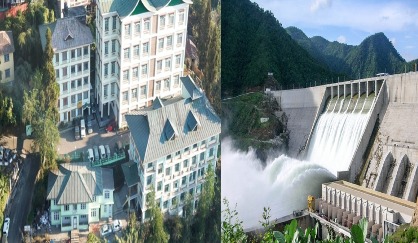
The Sikkim High Court has ordered Gati Hydro Power to help financially the two mothers whose young sons died by drowning in swollen river mainstream by paying them Rs 70 lakhs.
The accident caused due to sudden release of water by the Gati Hydro power project company in non-compliance of government guidelines and directions which was previously issued by the Court in light of a similar mishap.
Justice Meenakshi Madan Raiobserved that the company (respondent no.3) failed to adequately install warning sirens near river, making it impossible for the locals to know of the sudden release of water.
The bench ordered that the concerned Hydro Power Projects in the entire State comply with all safety measures outlined in the government notification and guidelines established by the High Court within three months.
Counsel for petitioners, Mon Maya Subba argued that the sirens, which should have been placed at a distance of about one kilometre each according to Home Department guidelines, were not in place, nor was one installed at the scene of the incident.
The Additional Advocate General for the state Sudesh Joshi submitted that while the State Government is following the directions in Zangpo Sherpa, Respondent No.3 has been irresponsible in failing to instal sirens or other warning devices to prevent the death of people who may be in and around the rivers.
The court observed that the state had duly notified the guidelines that were to be strictly followed by the Hydro Power Projects, but there is a lackadaisical attitude with total indifference displayed by Respondent No.3.
The court cited a report submitted by the Inspection Committee established under Section 30 of the Disaster Management Act, 2005, which stated that ‘it is learnt that they have installed sirens at places but not near the place of occurrence’.
It was contended by the respondent no. 3 that the victims should not have been out and about crossing the river during the period of National Lockdown and that, if they had to go out, they should have used the foot bridge across the river instead of crossing on foot.
Rejecting this contention, the High Court ruled, “The Hydro Power Project Companies cannot control and put restrictions on the free movement of free citizens of the country. Their responsibility is limited to ensuring that all necessary guidelines and directions issued for safety of persons who may be in and around the rivers at any given time are followed and precautions are taken without compromising on any aspect whatsoever.”
Finally, the court ordered respondent number 3 to compensate each petitioner within 45 days.




